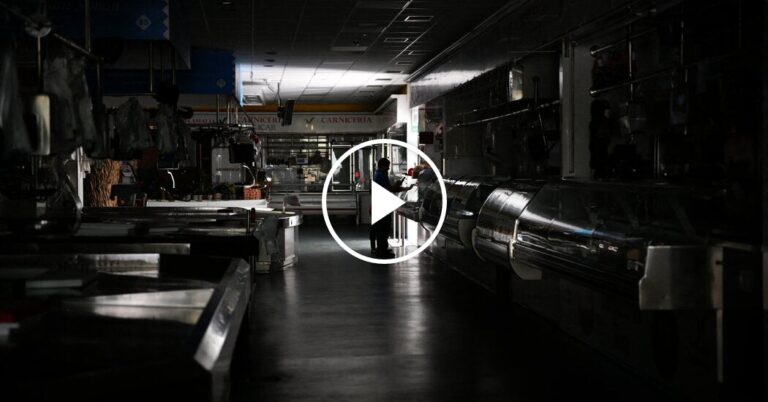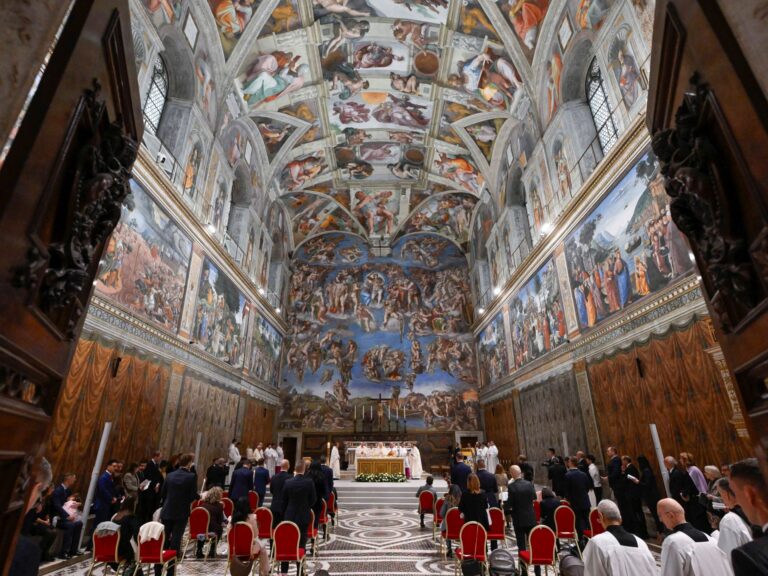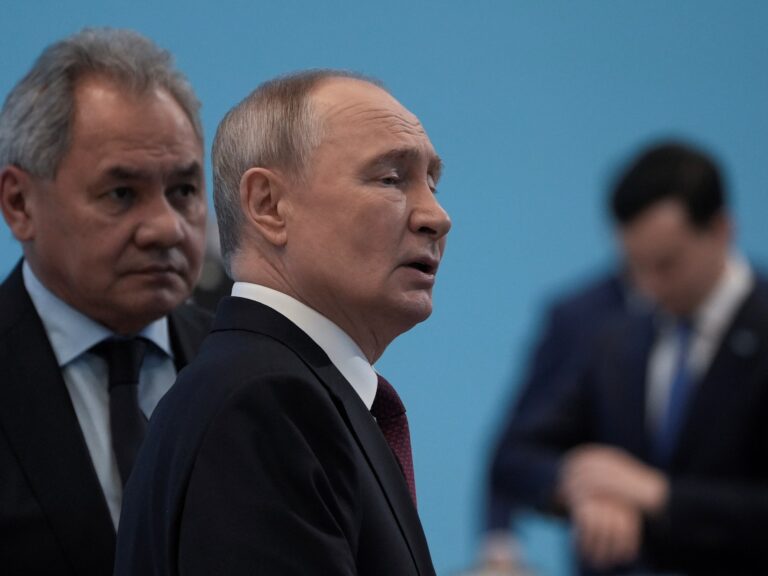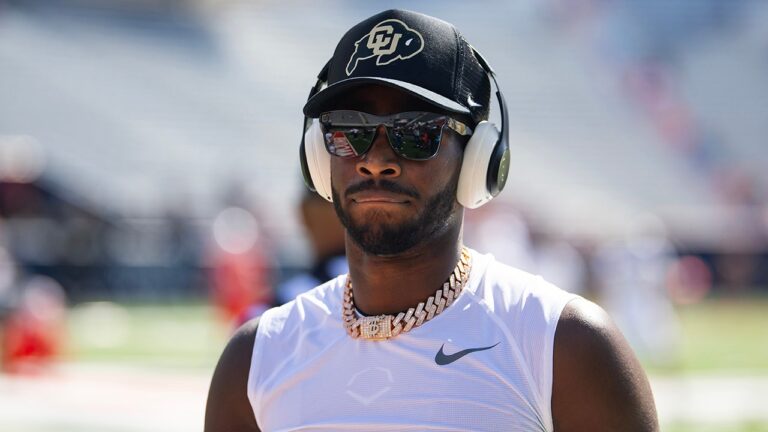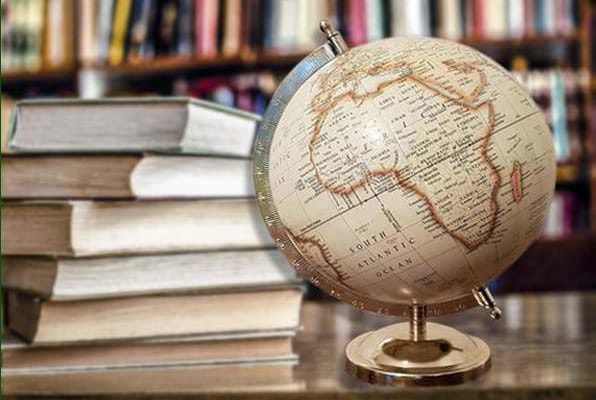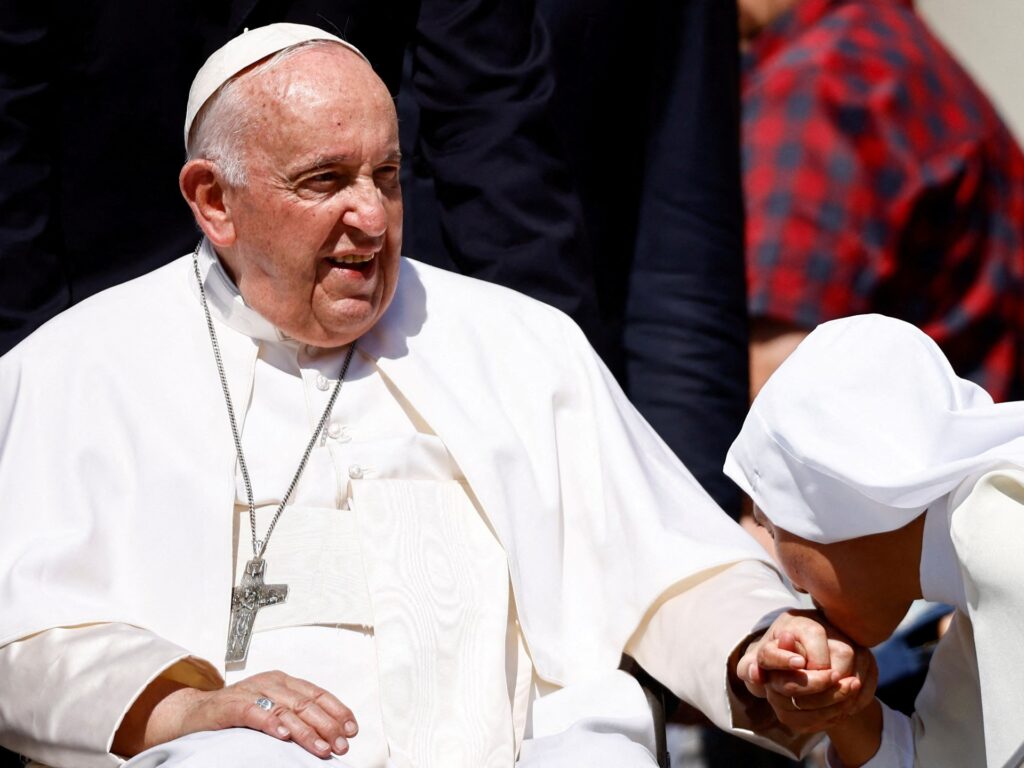
Pope Francis, the Argentinian pontiff who brought the plight of the world’s most marginalised back to the centre of the Roman Catholic Church’s attention, has died aged 88, the Vatican announced on Monday.
A charismatic communicator with a friendly demeanour, Francis succeeded in broadening Catholicism’s appeal at a time of growing disenchantment towards the Church – an institution embroiled in financial and sexual scandals.
Throughout his papacy from 2013 to 2025, the pope stripped the Vatican of some layers of opacity and connected to the concerns of common people. He highlighted the plight of the poor and that of prisoners.
Francis condemned the Church’s abuse of power while engaging with other faiths.

Francis’s tone marked a radical departure from his predecessor, Benedict XVI, who believed that nurturing the Church’s most ardent believers was the way to strengthen the institution.
But Francis’s shift never translated into fundamental changes to the Church’s doctrine on contentious issues.
In most instances, he remained in line with previous papacies, staunchly opposing gay marriage, women becoming priests and priests marrying.
Still, his steps to open up the Church drew the ire of traditionalists, while the lack of radical change under his watch drew criticism from progressives.

Religious pluralism and inequality
Francis was born Jorge Mario Bergoglio in 1936 in the Argentinian capital, Buenos Aires, to immigrant parents who fled Italy’s fascist dictatorship of Benito Mussolini.
He trained as a chemical technician, worked in the food processing industry and, for a brief time, was a bouncer in a nightclub in Cordoba before becoming a priest in 1969.
He liked to dance tango, although he preferred milonga, he said in a 2010 interview, referring to the faster-paced music that preceded tango.
His upbringing in Buenos Aires exposed him to religious pluralism and socioeconomic inequalities – two factors that experts believe explain his commitment to interfaith dialogue and pointed criticism of capitalism and consumerism.

At just 36 years of age, he became the head of Argentina’s Jesuits, a Roman Catholic order of priests.
Back then, he was a stern disciplinarian, experts and biographers say. At the time, liberation theology, a left-wing interpretation of the Gospel that centred on concern for the poor and oppressed groups, was popular among Jesuits in Latin America, but Francis did not subscribe to the ideology.
Dirty War
Francis’s tenure then coincided with the years of Argentina’s Dirty War, which lasted from 1976 to 1983 – seven years of brutal military dictatorship.
Tens of thousands of people were tortured, killed and disappeared. The role of Argentina’s Church in those years remains contentious, with Francis never openly denouncing the regime.
As archbishop of Buenos Aires, a position he assumed in 1998, he said he was not aware of the scale of what was happening in the late 1970s – a position refuted by critics and associates who argue that there was no way he could not have known at the time.
“Let us pray … for the complicit silence of most of society and of the Church,” he said during a ceremony in 1999, a quote some read as an admission of complacency.
During his time as archbishop, he would become an outspoken critic of social injustice and economic inequality.
“The Church can’t just sit sucking its finger when faced with a frivolous, cold and calculating market economy,” he once said during a sermon.
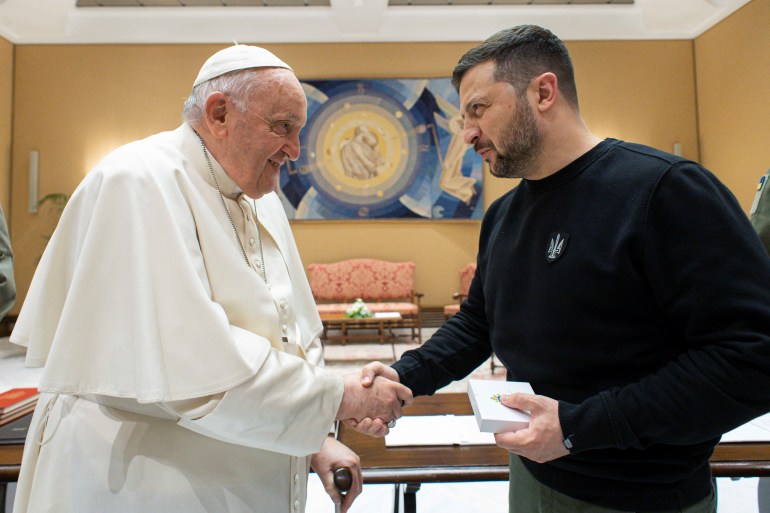
Breaking with tradition
In 2013, the Catholic world was shocked when the then-Pope Benedict XVI resigned, breaking a centuries-old tradition of holding papal duties until death.
Francis, who by then had been elected cardinal, rushed to the Vatican to vote for a new pope.
In what was a tight race, Francis who had already been a runner-up in the previous papal conclave in 2005, was elected.
With him, the Church chose its first non-European pontiff in 1,282 years – the last one was Gregory III, elected in 731 from Syria – and also its first leader since then from the Global South, which today is home to the majority of Christians worldwide.
Francis set the tone of his papacy immediately. When he stood at the large balcony and faced the huge crowd in Saint Peter’s Square after being elected, he broke with the tradition of blessing the crowd, asking the people instead to pray for him.
He refused to move to the grand papal apartment on the top floor of the Vatican palace, opting to stay in the more modest Domus Santae Marthae residence.
And he preferred to be driven around in a Fiat rather than a Mercedes-Benz.
“Be shepherds with the smell of sheep,” he told a crowd of priests in 2013, urging a departure from the pomp and splendour often associated with the clergy’s top hierarchy.

On his first trip outside Rome as pope, he travelled to Lampedusa, an Italian island and key point of entry for migrants and refugees trying to reach Europe. He threw a crown of flowers into the sea to commemorate the people who died in the Mediterranean Sea while risking their lives to come to Europe.
Francis criticised then-US President Donald Trump’s plan in 2017 to build a wall along the Mexican border and his speeches targeting Muslims.
“In Pope Francis, the message that ‘everybody is brothers and sisters’ is very strong, along with insisting that God pushes for religious pluralism,” said Marco Politi, a Vatican expert and author of the book Pope Francis Among the Wolves: The Inside Story of a Revolution.
Such pluralism translated into a more inclusive approach towards other religions, Politi said, putting an end to the “culture war of previous papacies”.
From the Vatican to the Arabian Peninsula
Ties between the Church and Muslims around the world had soured when Francis’s predecessor Benedict XVI made a speech in September 2006 that was perceived as linking Islam to violence.
Francis became the first pontiff ever to travel to the Arabian Peninsula. In February 2019, he landed in the United Arab Emirates where he met Sheikh Ahmed el-Tayeb, the grand imam of Cairo’s Al-Azhar Mosque.
Together they signed a document rejecting religious fundamentalism, exhorting people to see in the other a “brother to support and love”. The pope had also met Sheikh el-Tayeb previously, in 2016 at the Vatican.
In another first, Francis in 2015 published the encyclical Laudato si’ (Praise be to you), in which he urged the world to address the threat of climate change while also stressing the need to rethink the economic balance between the industrialised and developing worlds.

Response to sexual abuse in the Church
The issue of sexual abuses perpetrated by Church officials dominated the tenure of Benedict XVI, whose papacy saw a wave of scandals.
Francis began addressing the issue of abuse in 2019 by abolishing the rule of “pontifical secrecy” on cases related to sexual violence.
This meant that testimonies collected in the canonical process were finally made available to legal authorities.
That same year, after the pope himself admitted to having dismissed valid claims of sexual abuse in Chile, he introduced a law outlining clear rules for reporting child sexual abuse committed by Church officials and attempts to cover it up.
Four years later, that rule was updated and strengthened to widen the category of victims to vulnerable adults while laypeople working for the Church could also now face punishment. But victims’ advocates and critics say Francis did not go far enough to ensure justice.

‘Who am I to judge?’
Francis drastically changed the tone of the Church towards homosexuality, ending the Vatican’s long demonisation of gay people.
“Who am I to judge?” he famously said in 2013, his words a stark contrast to those of Pope John Paul II, who more than 10 years earlier called a gay rights march in Rome “an offence to Christian values”.
More recently, on his way back from a trip to South Sudan, Francis said being gay was not a crime.
He expressed support for same-sex civil unions. In 2023, he hinted that he was open to reviewing the practice of celibacy.
In December 2023, the Vatican in a landmark ruling decided that Catholic priests would be able to administer blessings to same-sex couples, provided these were not given in the context of civil unions or weddings or Church liturgies.
At the same time, the pontiff remained opposed to gay marriage and abortion and, while he included women in the Vatican’s government, he always ruled out them becoming priests.
Throughout his papacy, Francis often found himself under attack from both conservative and progressive camps.
Those following the traditional doctrine saw him as too much of a reformer and a socialist, while those seeking deeper changes within the Church did not consider him bold enough.
Politi, the Vatican expert, argues that Francis’s decision to not make changes that were too radical was a decision that stemmed from an understanding that this would have torn apart an already much-divided Church. Instead, he says, Francis opted “to trigger processes of transformation in its mentality through gestures and words”.
